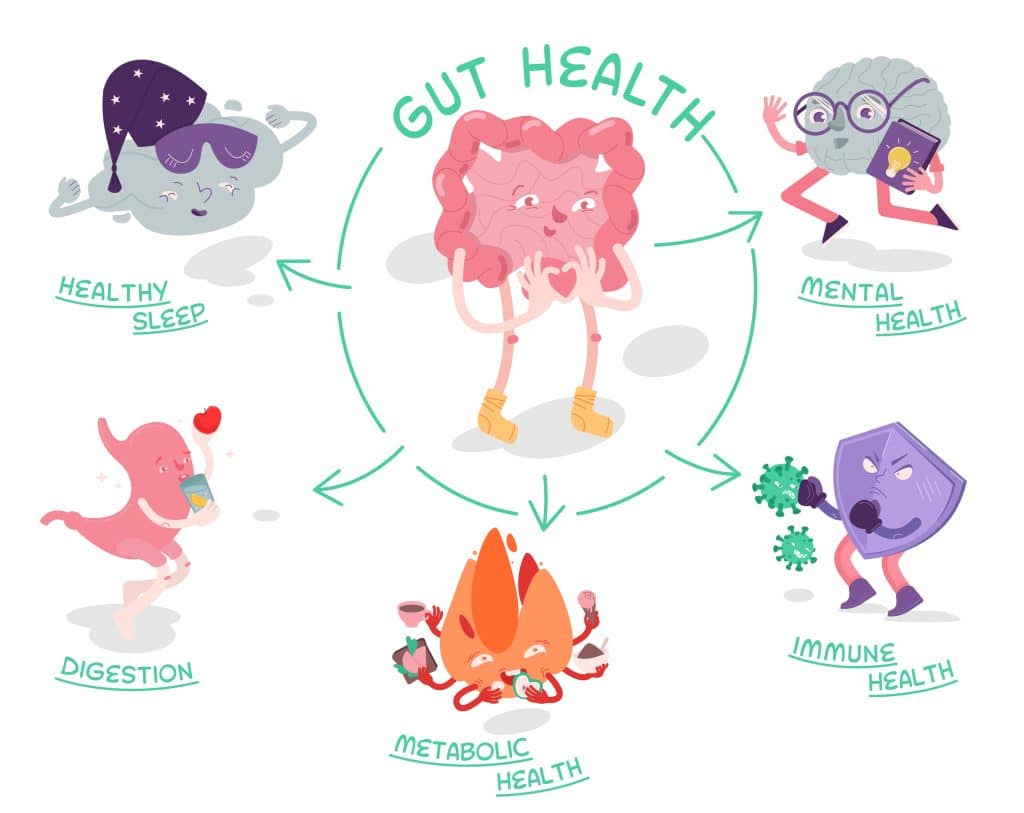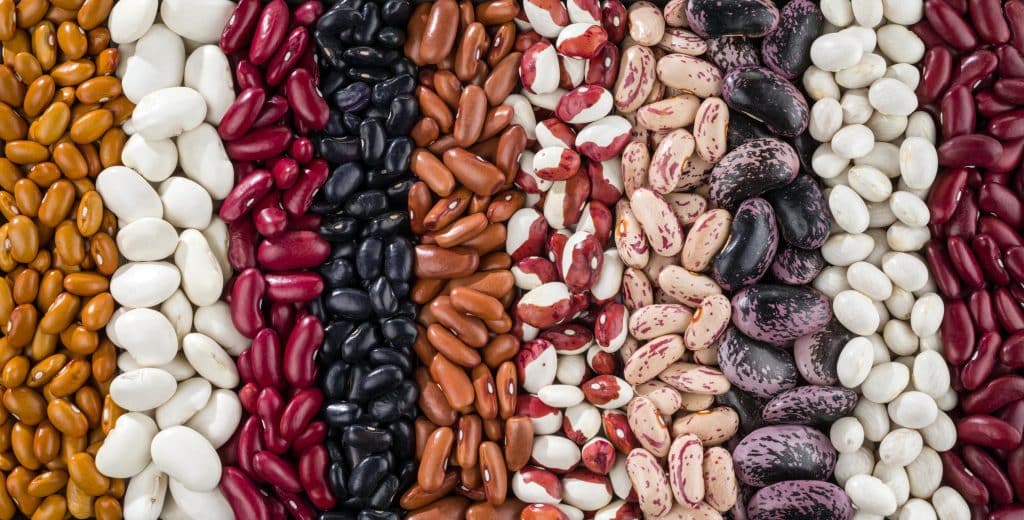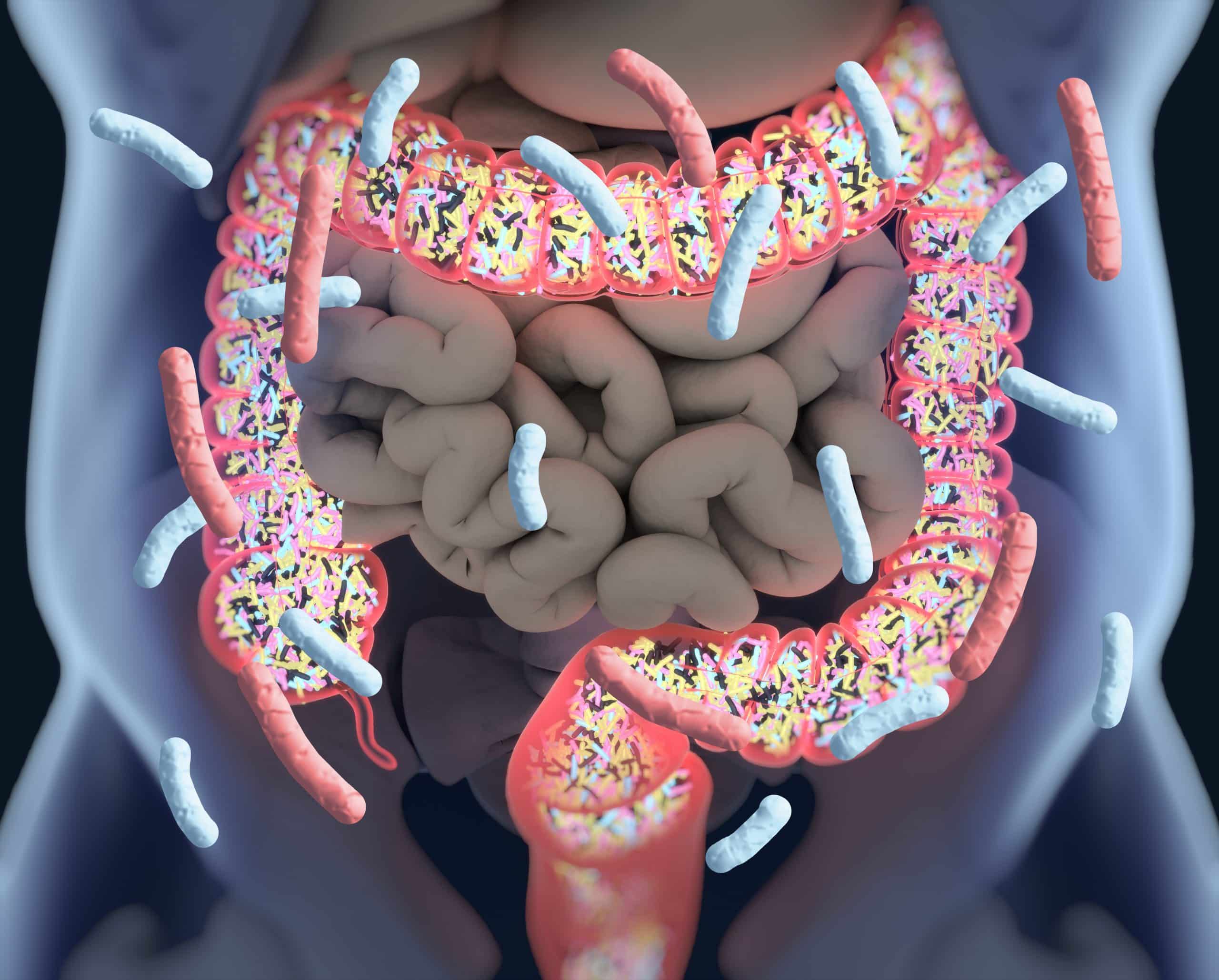Improve Gut Health And Microbiome Health – The Definitive Guide
It’s important to take steps to improve gut health if we want to be healthy overall and avoid chronic illness. The gut, or the gastrointestinal tract, is not just responsible for digestion but also plays a crucial role in our overall health. The gut is home to trillions of microorganisms, collectively known as the microbiome. These microorganisms play a vital role in maintaining our digestive and immune systems and are essential for our overall well-being.
Improve Gut Health – Reprogramming The Microbiome
It is now well known that the gut microbiome plays a crucial role in our overall health and well-being. These microorganisms are involved in various physiological processes such as digestion, immune response, and even brain function.1
However, due to factors like poor diet, stress, antibiotics usage, and environmental toxins, our gut microbiome can become imbalanced, leading to a condition called dysbiosis. This can result in a variety of health issues including digestive problems, allergies, autoimmune disorders, and even mental health conditions.2
Fortunately, recent research has shown that it is possible to reprogram the microbiome and restore balance to improve overall gut health. This can be achieved through various methods such as dietary changes and fecal microbiota transplantation.
One key factor in reprogramming the microbiome is through diet. Consuming fiber-rich and fermented foods can increase the diversity of beneficial bacteria in the gut, promoting a healthy balance. On the other hand, processed and sugary foods can disrupt this balance and lead to dysbiosis.3
Another emerging method for reprogramming the microbiome is fecal microbiota transplantation (FMT). This involves transferring healthy bacteria from a donor’s stool into the gut of an individual with dysbiosis. While still considered experimental, FMT has shown promising results in treating conditions such as Clostridium difficile infection and inflammatory bowel disease.4
Aside from these methods, there are also other lifestyle factors that can influence the microbiome, such as stress management and reducing exposure to environmental toxins. Chronic stress has been linked to dysbiosis, so incorporating relaxation techniques like meditation or yoga can help improve gut health.5
Read more about IBD.

Improve Gut Health – Avoid Processed Food
One major factor that affects gut health is the consumption of processed foods. These are foods that have undergone extensive processing and contain added preservatives, artificial flavors, and other additives. They are often high in unhealthy fats, sugar, and salt, while lacking essential nutrients.
When we consume a diet rich in processed foods, it can negatively impact our gut microbiota in several ways. These foods are often low in fiber, which is essential for maintaining a diverse and healthy gut microbiome. Fiber acts as food for the beneficial bacteria in our gut, helping them thrive and keep harmful bacteria at bay.
Moreover, processed foods contain additives that can disrupt the communication between gut bacteria and the immune system. This can weaken our immune response and make us more susceptible to infections and illnesses.6
Improve Gut Health – Avoid Artificial Sweeteners
Artificial sweeteners are synthetic sugar substitutes that are used in place of natural sweeteners like sugar and honey. Some common examples include aspartame, saccharin, and sucralose. They are often marketed as a healthier alternative to sugar because they contain little to no calories.
Despite their low-calorie count, artificial sweeteners have been linked to negative effects on our gut health. Research has shown that they can alter the balance of bacteria in our gut microbiome, leading to issues like inflammation and impaired digestion.7
Moreover, artificial sweeteners have been found to increase cravings for sugary foods, which can ultimately lead to overconsumption of calories and weight gain. This is due to their intense sweetness, which can desensitize our taste buds and make us crave more and more sugar.8
This could be because they can disrupt our body’s natural response to insulin, a hormone that regulates blood sugar levels.9
Improve Gut Health – Avoid Emulsifiers
The previous section discussed the negative effects of emulsifiers on gut health. When grocery shopping, it is important to read food labels carefully and look for any mention of emulsifiers. Some commonly used emulsifiers include carrageenan, lecithin, xanthan gum, and polysorbate 80. Avoid products that contain these ingredients to improve gut health.10
Improve Gut Health – Consume Fiber Rich Food
Fiber is an essential nutrient that plays a crucial role in maintaining good gut health. It is the indigestible part of plant-based foods that passes through our digestive system and helps to keep it clean and healthy. Consuming fiber-rich foods has numerous benefits, including promoting regular bowel movements, lowering cholesterol levels, and controlling blood sugar levels.11
There are two types of fiber, soluble and insoluble. Soluble fiber dissolves in water and helps to slow down digestion, making us feel full for a longer time. It also helps to lower cholesterol levels by binding with bile acids in the intestine. Good sources of soluble fiber include beans, lentils, apples, and vegetables.
Insoluble fiber, on the other hand, does not dissolve in water and helps to add bulk to our stool, promoting regular bowel movements. It also helps to prevent constipation and digestive disorders like diverticulitis. Good sources of insoluble fiber include whole grains, nuts, seeds, and vegetables.
To improve gut health, it is essential to consume a variety of high-fiber foods. The recommended daily fiber intake for adults is 25 to 30 grams. However, most people do not consume enough fiber in their diet. To increase your fiber intake, incorporate more whole grains, fruits, vegetables, and legumes into your meals.12
In addition to consuming high-fiber foods, it is also important to drink plenty of water throughout the day. Fiber needs water to work effectively in our digestive system, so it is crucial to stay hydrated. Aim for at least 8 glasses of water per day.
It is also important to note that increasing fiber intake too quickly can cause bloating, gas, or discomfort in some individuals. Therefore, it is recommended to gradually increase fiber intake and drink plenty of water.

Read more about eating a healthy diet.
Improve Gut Health – Consume Fermented Food
Fermented foods have gained a lot of attention in recent years due to their potential health benefits. They are not only delicious, but they also provide numerous health benefits, especially for your gut.13
The process of fermentation involves the breakdown of sugars and other carbohydrates by bacteria and yeast. This process creates beneficial enzymes, B vitamins, omega-3 fatty acids, and various strains of probiotics that are beneficial for your gut health.
Some popular fermented foods include kimchi, sauerkraut, kefir, tempeh, and kombucha. These foods are rich in nutrients and can help improve digestion, boost the immune system, and reduce inflammation in the gut.14
In addition to these benefits, consuming fermented foods can also aid in weight loss. The probiotics found in fermented foods can help regulate the hormones responsible for appetite and food intake, helping you feel fuller for longer periods of time.15
Moreover, incorporating fermented foods into your diet can also improve mental health. The gut-brain connection is a well-known phenomenon, and studies have shown that consuming fermented foods may improve mood, reduce symptoms of anxiety and depression, and even improve cognitive function.16
To reap the most benefits from fermented foods, it’s essential to choose high-quality and unpasteurized options. The process of pasteurization can kill off beneficial bacteria in the food, reducing its health benefits. It’s also important to start slowly when incorporating fermented foods into your diet, as they can cause temporary digestive discomfort in some individuals.

Improve Gut Health – Reduce Autoimmune Conditions
Autoimmune conditions are disorders in which the body’s immune system mistakenly attacks its own healthy cells and tissues. These conditions can have a significant impact on a person’s quality of life, causing chronic pain, fatigue, and other debilitating symptoms. The gut plays a crucial role in our immune system. In fact, about 70% of our body’s immune cells are located in the gut.17
A healthy gut is essential for proper immune function. When our gut microbiome is imbalanced, it can lead to a weakened immune system and increased inflammation.18
Inflammation is a natural response of the immune system, but when it becomes chronic, it can contribute to the development of autoimmune conditions. Chronic inflammation can damage tissues and organs over time, leading to symptoms like joint pain, fatigue, and digestive issues.19
By improving gut health, we can reduce chronic inflammation and potentially prevent the development of autoimmune conditions.
Read more about autoimmune conditions.
Improve Gut Health And Microbiome Health – The Definitive Guide
As more and more research is done on the human body, it is becoming increasingly clear that our gut health plays a crucial role in maintaining overall health and well-being. By avoiding processed food and other toxins, while consuming a healthy diet with sufficient fiber and fermented foods, we can repair our microbiome.
Read more about the microbiome.
References
1 de Vos WM, Tilg H, Van Hul M, Cani PD. Gut microbiome and health: mechanistic insights. Gut. 2022 May;71(5):1020-1032. doi: 10.1136/gutjnl-2021-326789. Epub 2022 Feb 1. PMID: 35105664; PMCID: PMC8995832.
2 Hills RD Jr, Pontefract BA, Mishcon HR, Black CA, Sutton SC, Theberge CR. Gut Microbiome: Profound Implications for Diet and Disease. Nutrients. 2019 Jul 16;11(7):1613. doi: 10.3390/nu11071613. PMID: 31315227; PMCID: PMC6682904.
3 Song Z, Song R, Liu Y, Wu Z, Zhang X. Effects of ultra-processed foods on the microbiota-gut-brain axis: The bread-and-butter issue. Food Res Int. 2023 May;167:112730. doi: 10.1016/j.foodres.2023.112730. Epub 2023 Mar 21. PMID: 37087282.
4 Kim JH, Kim K, Kim W. Gut microbiota restoration through fecal microbiota transplantation: a new atopic dermatitis therapy. Exp Mol Med. 2021 May;53(5):907-916. doi: 10.1038/s12276-021-00627-6. Epub 2021 May 20. PMID: 34017060; PMCID: PMC8178377.
5 Foster JA, Rinaman L, Cryan JF. Stress & the gut-brain axis: Regulation by the microbiome. Neurobiol Stress. 2017 Mar 19;7:124-136. doi: 10.1016/j.ynstr.2017.03.001. PMID: 29276734; PMCID: PMC5736941.
6 Zinöcker MK, Lindseth IA. The Western Diet-Microbiome-Host Interaction and Its Role in Metabolic Disease. Nutrients. 2018 Mar 17;10(3):365. doi: 10.3390/nu10030365. PMID: 29562591; PMCID: PMC5872783.
7 Ruiz-Ojeda FJ, Plaza-Díaz J, Sáez-Lara MJ, Gil A. Effects of Sweeteners on the Gut Microbiota: A Review of Experimental Studies and Clinical Trials. Adv Nutr. 2019 Jan 1;10(suppl_1):S31-S48. doi: 10.1093/advances/nmy037. Erratum in: Adv Nutr. 2020 Mar 1;11(2):468. PMID: 30721958; PMCID: PMC6363527.
8 Yang Q. Gain weight by “going diet?” Artificial sweeteners and the neurobiology of sugar cravings: Neuroscience 2010. Yale J Biol Med. 2010 Jun;83(2):101-8. PMID: 20589192; PMCID: PMC2892765.
9 Purohit V, Mishra S. The truth about artificial sweeteners – Are they good for diabetics? Indian Heart J. 2018 Jan-Feb;70(1):197-199. doi: 10.1016/j.ihj.2018.01.020. PMID: 29455781; PMCID: PMC5903011.
10 Naimi S, Viennois E, Gewirtz AT, Chassaing B. Direct impact of commonly used dietary emulsifiers on human gut microbiota. Microbiome. 2021 Mar 22;9(1):66. doi: 10.1186/s40168-020-00996-6. PMID: 33752754; PMCID: PMC7986288.
11 Barber TM, Kabisch S, Pfeiffer AFH, Weickert MO. The Health Benefits of Dietary Fibre. Nutrients. 2020 Oct 21;12(10):3209. doi: 10.3390/nu12103209. PMID: 33096647; PMCID: PMC7589116.
12 Akbar A, Shreenath AP. High Fiber Diet. [Updated 2023 May 1]. In: StatPearls [Internet]. Treasure Island (FL): StatPearls Publishing; 2023 Jan-. Available from: https://www.ncbi.nlm.nih.gov/books/NBK559033/
13 Leeuwendaal NK, Stanton C, O’Toole PW, Beresford TP. Fermented Foods, Health and the Gut Microbiome. Nutrients. 2022 Apr 6;14(7):1527. doi: 10.3390/nu14071527. PMID: 35406140; PMCID: PMC9003261.
14 Bell V, Ferrão J, Pimentel L, Pintado M, Fernandes T. One Health, Fermented Foods, and Gut Microbiota. Foods. 2018 Dec 3;7(12):195. doi: 10.3390/foods7120195. PMID: 30513869; PMCID: PMC6306734.
15 Jalili M, Nazari M, Magkos F. Fermented Foods in the Management of Obesity: Mechanisms of Action and Future Challenges. Int J Mol Sci. 2023 Jan 31;24(3):2665. doi: 10.3390/ijms24032665. PMID: 36768984; PMCID: PMC9916812.
16 Kim B, Hong VM, Yang J, Hyun H, Im JJ, Hwang J, Yoon S, Kim JE. A Review of Fermented Foods with Beneficial Effects on Brain and Cognitive Function. Prev Nutr Food Sci. 2016 Dec;21(4):297-309. doi: 10.3746/pnf.2016.21.4.297. Epub 2016 Dec 31. PMID: 28078251; PMCID: PMC5216880.
17 Wiertsema SP, van Bergenhenegouwen J, Garssen J, Knippels LMJ. The Interplay between the Gut Microbiome and the Immune System in the Context of Infectious Diseases throughout Life and the Role of Nutrition in Optimizing Treatment Strategies. Nutrients. 2021 Mar 9;13(3):886. doi: 10.3390/nu13030886. PMID: 33803407; PMCID: PMC8001875.
18 Yoo JY, Groer M, Dutra SVO, Sarkar A, McSkimming DI. Gut Microbiota and Immune System Interactions. Microorganisms. 2020 Oct 15;8(10):1587. doi: 10.3390/microorganisms8101587. Erratum in: Microorganisms. 2020 Dec 21;8(12): PMID: 33076307; PMCID: PMC7602490.
19 Duan L, Rao X, Sigdel KR. Regulation of Inflammation in Autoimmune Disease. J Immunol Res. 2019 Feb 28;2019:7403796. doi: 10.1155/2019/7403796. PMID: 30944837; PMCID: PMC6421792.




